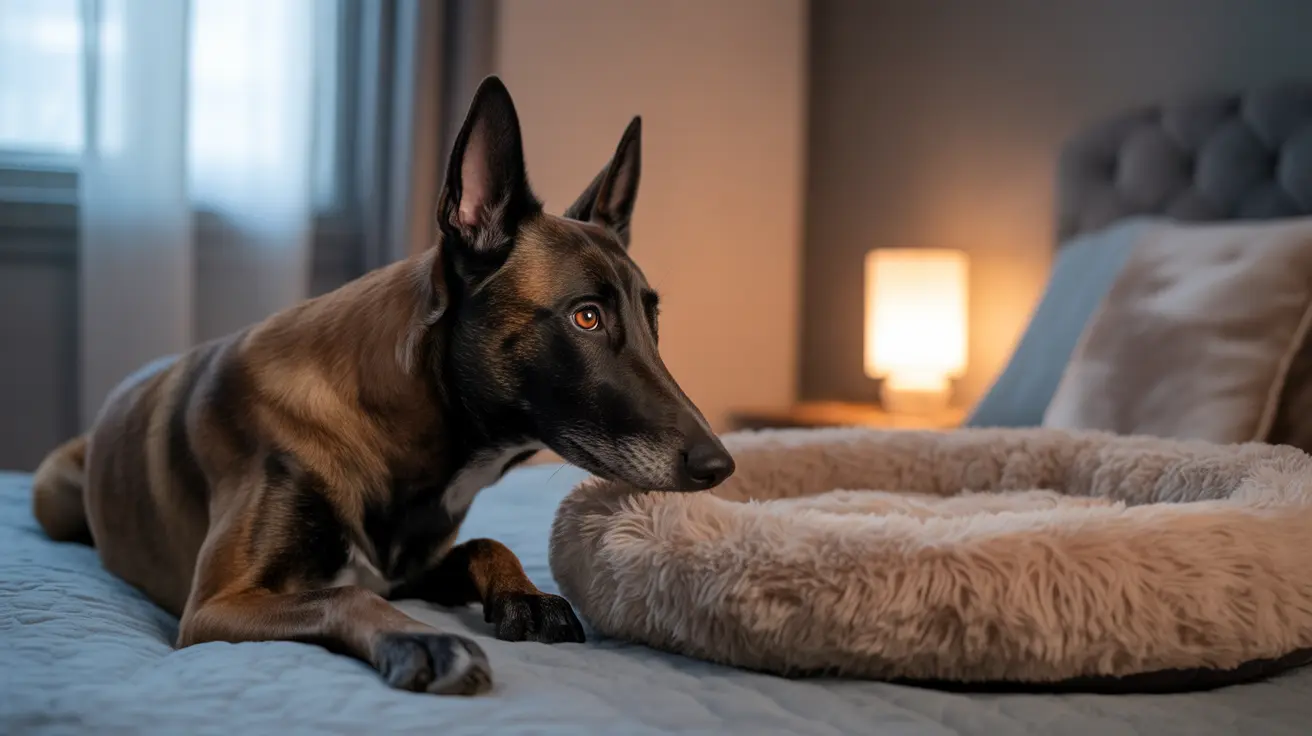If you've ever found yourself awake at 3 AM wondering why your dog won't settle down, you're not alone. Nighttime restlessness in dogs is a common concern that can stem from various physical, psychological, and environmental factors. Understanding the root cause of your dog's restless behavior is crucial for both their well-being and your peace of mind.
In this comprehensive guide, we'll explore the most common reasons behind nighttime restlessness in dogs and provide practical solutions to help your furry friend get the quality sleep they need.
Common Medical Causes of Nighttime Restlessness
Physical discomfort often lies at the heart of nighttime restlessness in dogs. Several health conditions can make it difficult for your pet to find comfort and rest:
Pain and Physical Discomfort
Arthritis, dental problems, and gastrointestinal issues can all contribute to your dog's inability to settle at night. Senior dogs are particularly susceptible to joint pain that worsens when lying down for extended periods.
Sleep Disorders
While less common, dogs can suffer from various sleep disorders including sleep apnea (especially in brachycephalic breeds), narcolepsy, and REM behavior disorder. These conditions require veterinary diagnosis and specific treatment plans.
Behavioral and Environmental Factors
Anxiety and Stress
Dogs are sensitive to changes in their environment and routine. Moving to a new home, changes in family dynamics, or separation anxiety can all manifest as nighttime restlessness. Even subtle changes like new furniture arrangements can impact your dog's sense of security.
Lack of Physical Activity
Insufficient exercise is a leading cause of nighttime restlessness. Dogs need appropriate physical activity and mental stimulation during the day to maintain a healthy sleep-wake cycle.
Creating the Ideal Sleep Environment
Comfortable Sleeping Area
Ensure your dog has a comfortable, supportive bed in a quiet location with appropriate temperature control. Some dogs prefer enclosed spaces, while others need more open areas to feel secure.
Consistent Routine
Establish a regular schedule for feeding, exercise, and bedtime. Dogs thrive on routine, and consistency can significantly improve their sleep patterns.
Solutions for Better Sleep
Exercise and Mental Stimulation
Provide adequate physical exercise during the day, but avoid intense activity close to bedtime. Include mental enrichment through training sessions, puzzle toys, or scent work.
Addressing Anxiety
For dogs with anxiety-related restlessness, consider:
- Natural calming aids or pheromone diffusers
- Creating a safe, quiet space for sleeping
- Gradual desensitization to anxiety triggers
- Professional behavioral training when needed
When to Seek Professional Help
If your dog's restlessness persists despite implementing these solutions, it's important to consult a veterinarian, especially if you notice:
- Sudden changes in sleep patterns
- Signs of pain or discomfort
- Excessive panting or drooling at night
- Changes in appetite or water consumption
- Other unusual behavioral changes
Frequently Asked Questions
Why is my dog restless and pacing at night, and could it be due to pain or discomfort?
Yes, pain and discomfort are common causes of nighttime restlessness in dogs. Conditions like arthritis, dental problems, or digestive issues can make it difficult for dogs to get comfortable and sleep through the night. If you notice consistent restlessness, especially in older dogs, consult your veterinarian for a thorough evaluation.
How can anxiety or stress cause my dog to be restless during the night, and what calming methods help?
Anxiety can significantly impact a dog's ability to relax and sleep. Common calming methods include establishing a consistent bedtime routine, using calming aids like pheromone diffusers, providing a secure sleeping space, and addressing specific anxiety triggers through behavioral training.
Can lack of exercise during the day make my dog restless at night, and how much activity is ideal?
Yes, insufficient daily exercise often leads to nighttime restlessness. The ideal amount of exercise varies by breed, age, and health status, but most adult dogs need 30-60 minutes of moderate activity daily, split into multiple sessions.
What are the signs of sleep disorders in dogs, like sleep apnea or REM sleep behavior disorder?
Signs of sleep disorders include excessive snoring, gasping during sleep, acting out dreams (twitching, barking, or running while asleep), and unusual daytime sleepiness. Brachycephalic breeds are particularly prone to sleep apnea.
When should I take my restless dog to the vet for a professional evaluation?
Seek veterinary care if your dog shows persistent restlessness accompanied by changes in behavior, appetite, or water consumption, signs of pain, excessive vocalization, or if basic lifestyle modifications don't improve their sleep patterns.






